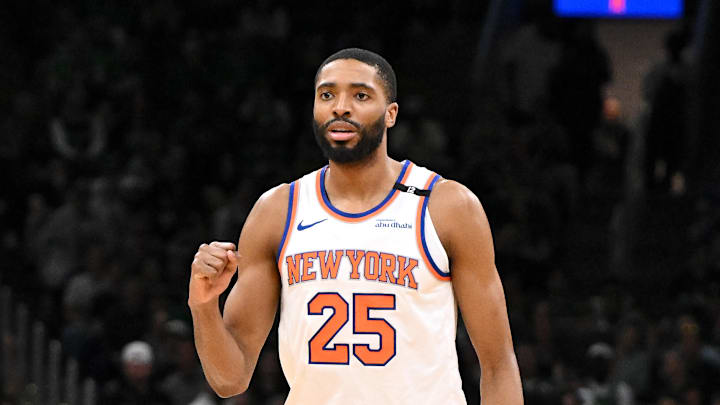For the first time in a long time, the Knicks have several options for how they will fill out their starting lineup. I have been a big advocate for sitting Josh Hart in favor of Deuce McBride, which would optimize the Knicks' spacing on offense. While the spacing is the greatest reason, the swap would also allow McBride to become the point of attack defender on most nights, freeing up Mikal Bridges to shift into an off-ball role.
When the Knicks traded all those first-round picks to pry Bridges from the Brooklyn Nets, they envisioned him being able to guard the other team's primary ball-handling guard. While Bridges is a very good defender, that is not the role he is best suited for.
With McBride in the starting lineup, he can take on that responsibility. Something that would allow Bridges to spend more of his time off-ball, where he can use his elite instincts and long reach to blow up passing lanes.
Bridges struggles against smaller and quicker guards
For as good of a defender as Bridges can be, he has one glaring weakness on defense: fighting over ball screens. Whether it is a strength issue, or a lack of drive, or something else, screen navigation has been Bridges' greatest defensive flaw since joining the Knicks.
In their Eastern Conference Finals loss to the Indiana Pacers, it was too easy for Tyrese Haliburton to gain serious separation from Bridges with a single screen.
For as much as Bridges struggles at dealing with navigating picks, McBride thrives at it. In fact, it very well could be his greatest defensive attribute. McBride is one of the hardest players to screen in the league, while also having the quickness to make up lost ground from even the best screeners in the league.
The tracking data backs this up
While the difference in screen navigation ability between Bridges and McBride is clear from watching film, the numbers back it up as well.
Last season, according to league tracking data, Bridges allowed 1.04 points per direct when defending the ball handler on picks. Meanwhile, McBride allowed 0.9 points per direct, the best mark among Knicks' defenders who guarded at least 500 picks in the regular season.
On top of that, Bridges defended the highest percentage of picks that caused him to "die on contact", which means screens where the screener stopped the defender in their path, preventing them from recovering on the play.
